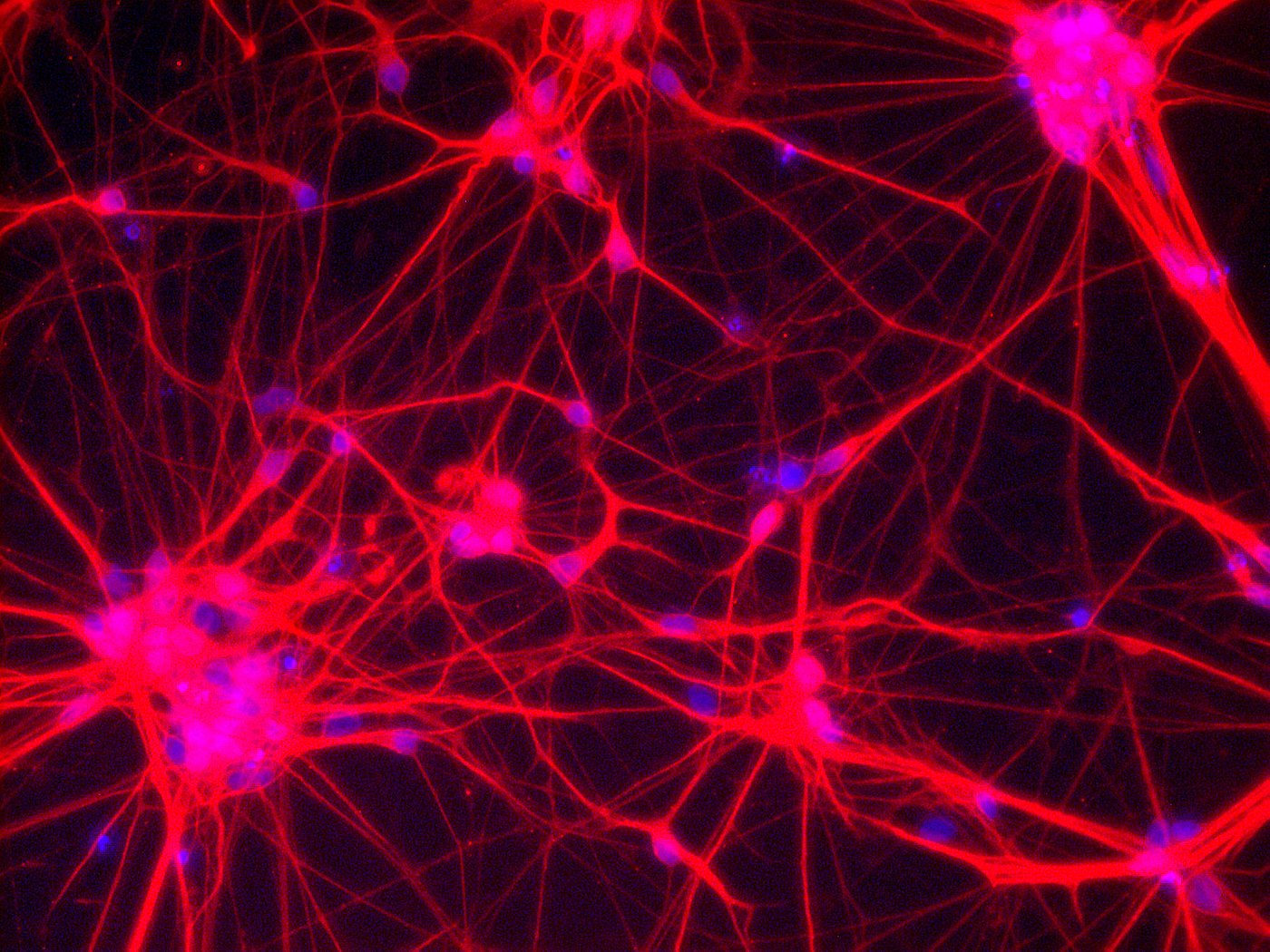
Neurons – Network of neuronal cells (Blue: nucleus; Red: neurons) [Copyright: Institute for Transfusion Medicine, UK Essen]
Professor Jochen Sautermeister, Department of Moral Theology, Faculty of Catholic Theology, University of Bonn.
Could you briefly introduce yourself and your academic background to our readers? With doctorates in both Catholic Theology and Psychology, I have held the Chair of Moral Theology (Theological Ethics) at the University of Bonn since 2016. This discipline examines fundamental questions in the theory of ethics and issues in life and relationship ethics. In addition, my work focuses on questions of (bio)medical ethics (e.g. as part of the German Research Foundation's Collaborative Research Centre TRR 127 on the Biology of Xenogeneic Cell, Tissue and Organ Transplantation); on fundamental questions of applied ethics; on ethical and epistemological problems in moral psychology; and also on questions of the importance of the consultation processes for ethical reflection.
Is there any common ground between your work and stem cell research? What aspects of this field interest you in particular? Common ground with stem cell research arises anywhere where questions of practical human self-awareness are touched upon and where questions of dealing responsibly with human life are concerned.
In your view, what are the big challenges faced by stem cell research over the next few years? One of the big ethical challenges will certainly be the ethical question of how we want to deal with the possibility of reprogramming induced pluripotent stem cells into germ cells. Another challenge will be the legal question of whether existing legislation is adequate for the new opportunities and perspectives opened up by stem cell research.
What can the interdisciplinary and transdisciplinary dialogue that we cultivate at the Stem Cell Network NRW do for this research field? In my view, and I am speaking here as a theological ethicist, this interdisciplinary and transdisciplinary dialogue provides an opportunity for bringing together differing perspectives in this dynamic and vital field of basic and applied (bio)medical research. In doing so, it is possible for research efforts to remain grounded in practical and social contexts with the moral codes and values that they practice and at the same time for the research to be reconnected back to fundamental questions of orientation. This affects social and ethical discourse through questions of how we deal with sickness and health and also through aspects of research ethics; however it also influences the concrete question of the potential impact on the lives of individuals or groups, and the general dimension of how we see ourselves as human beings; it also impacts on the question of which classification concepts and patterns of interpretation are important for answering these questions and finally it also affects issues of legal regulation in view of existing and new opportunities provided by stem cell research.
If you had one wish regarding stem cell research, what would you wish for? … that further medical breakthroughs will occur in the field of tissue engineering in the not too distant future.